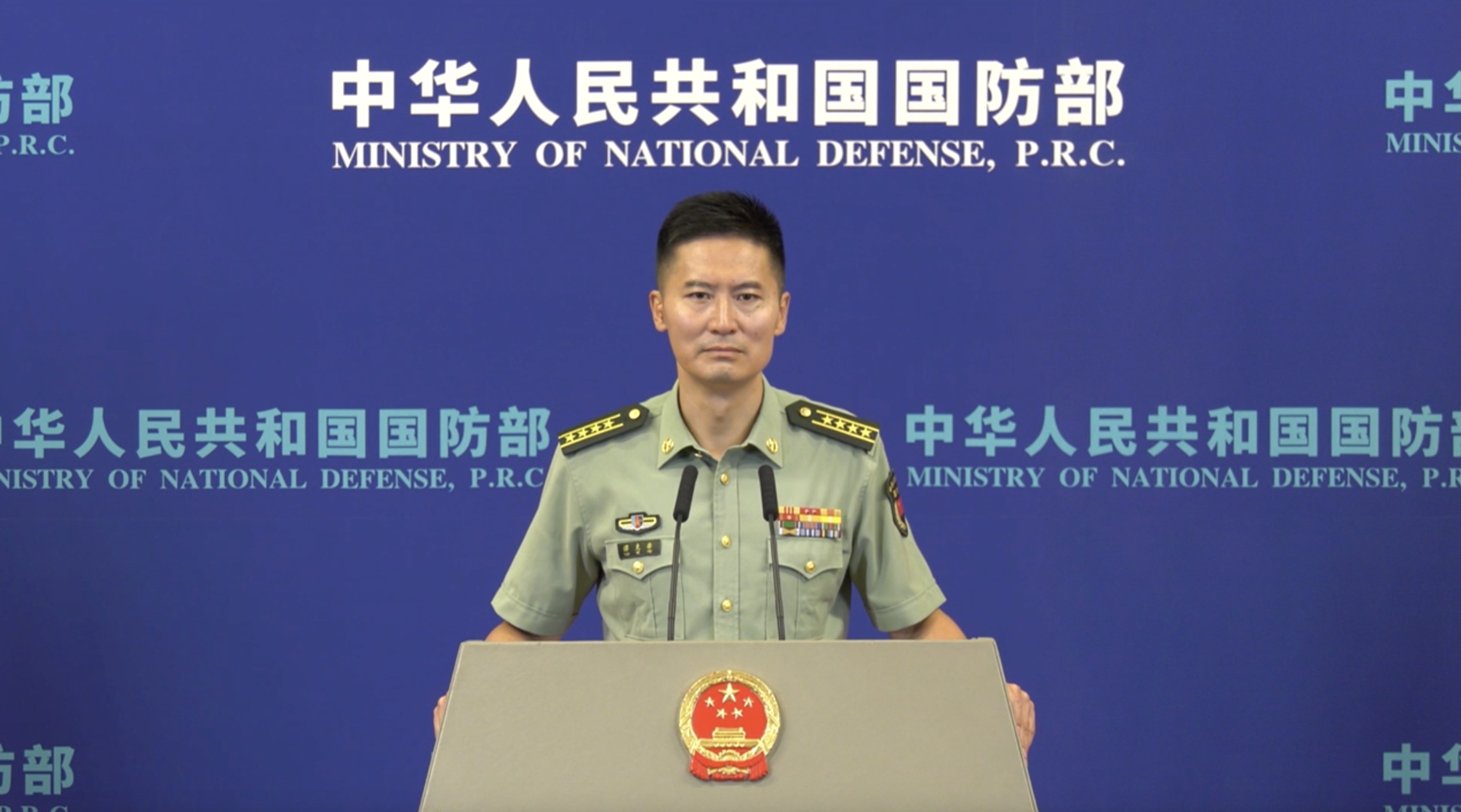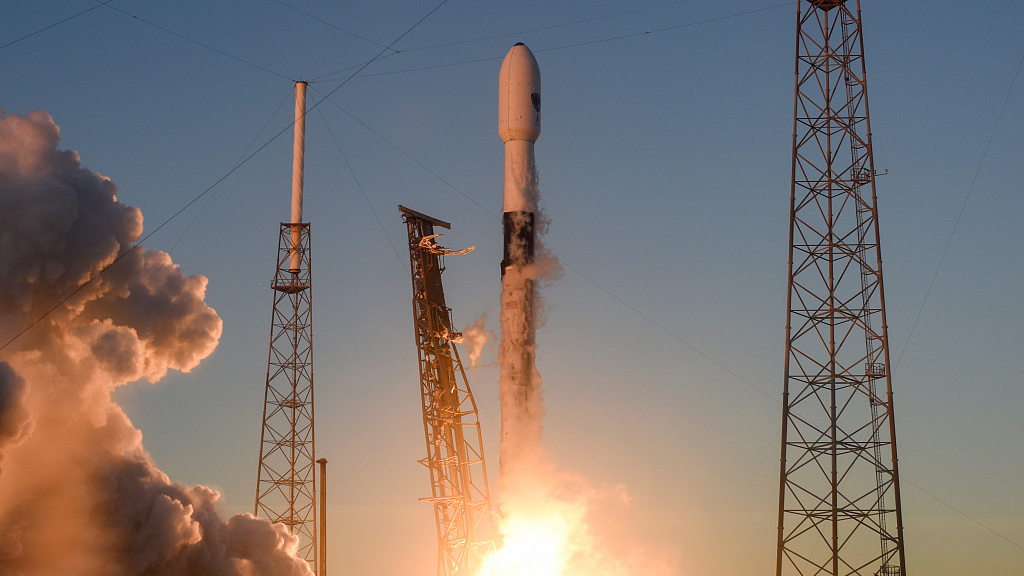
Tan Kefei, spokesperson for China's Ministry of National Defense, speaks at a press conference, Beijing, China, July 14, 2023. /Ministry of National Defense
Tan Kefei, spokesperson for China's Ministry of National Defense, speaks at a press conference, Beijing, China, July 14, 2023. /Ministry of National Defense
A Chinese Defense Ministry spokesperson on Friday reiterated that China stands for the peaceful use of outer space, firmly opposes weaponizing it or turning it into a battlefield, and is against any form of arms race in it.
Tan Kefei, spokesperson for the Ministry of National Defense, made the remarks when commenting on a U.S. military commander's words about the space race.
Tan said the U.S. has picked up speed in militarizing outer space over recent years, formed cliques of space alliances and stonewalled the process of space arms control.
The U.S. actions have taken a severe toll on space security and global strategic stability, said the spokesperson.
Tan urged the U.S. to respect the common aspiration of the international community, stop provoking arms races, and work with other countries to maintain enduring peace and security in outer space.

A SpaceX Falcon 9 rocket, boosting a Lockheed Martin GPS3 Global Navigation satellite for the U.S. Space Force, launches from Cape Canaveral Space Force Station, Florida, U.S., January 18, 2023. /CFP
A SpaceX Falcon 9 rocket, boosting a Lockheed Martin GPS3 Global Navigation satellite for the U.S. Space Force, launches from Cape Canaveral Space Force Station, Florida, U.S., January 18, 2023. /CFP
U.S. spy satellite
Bloomberg reported in June that the U.S. is planning to launch a constellation of satellites this summer to track Chinese or Russian space vehicles that can potentially disable or damage orbiting objects.
Dubbed "Silent Barker," the U.S. satellite network would be the first of its kind to complement ground-based sensors and low Earth orbit satellites, according to the U.S. Space Force and analysts, and the satellites will be placed about 35,400 kilometers above the Earth at the same speed it rotates, known as geosynchronous orbit.
"This capability enables indications and warnings of threats" against high-value U.S. systems and will "provide capabilities to search, detect and track objects from space for timely threat detection," the U.S. Space Force said in a statement.
Bloomberg reported that in its annual threat assessment, the U.S. Office of the Director of National Intelligence stated that China could target other countries' satellites, noting that China's Shijian-21 satellite had successfully dragged a failed BeiDou navigation satellite from the crowded geosynchronous orbit.
However, Song Zhongping, a military expert, told Global Times that the U.S. is using the "China threat" as an excuse to launch new satellite networks and is looking for opportunities to strengthen its space-based offensive and defensive capabilities to build a more advanced early-warning network which monitors all spacecraft.
Song also warned that a burgeoning extraterrestrial contest between superpowers may ultimately turn space into an arena for an arms race.
(With input from Xinhua)